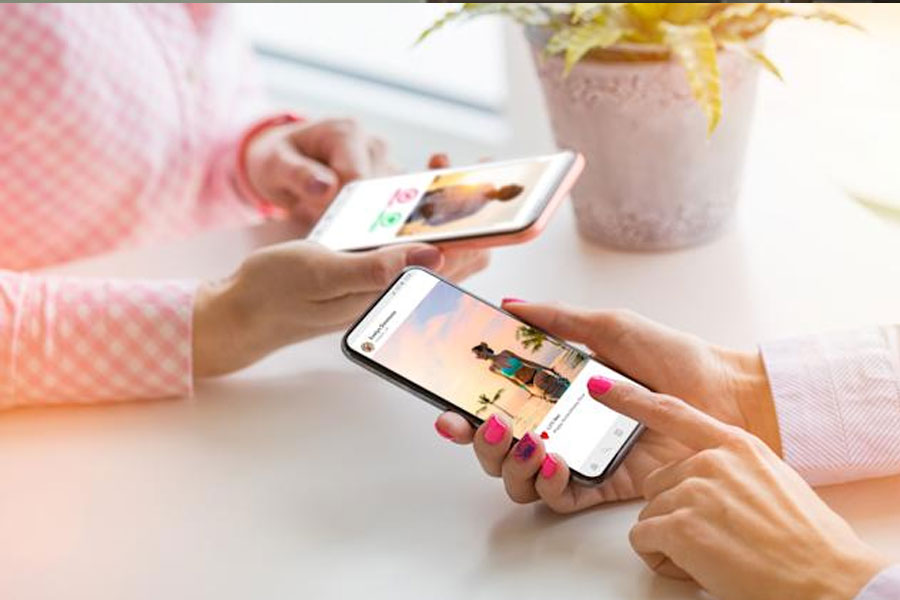For those who don’t use TikTok or are unaware of trends, the hashtag #Deinfluencing has not received 76 million views on TikTok, sparking a bigger conversation about overconsumption.
So, what is de-influencing? De-influencing is exactly what it sounds like: Content creators encourage people not to buy or use something.
Understanding ‘De-Influencing’
You must have noticed, every time you open your Instagram, Facebook, or other apps and your feed is filled with influencer content or sponsored ads encouraging you to buy products.
Those brands pay the influencers who pop on your feed a nice chunk of money to praise and promote their products, no matter what the quality may be.
However, when the consumer ends up buying the expensive product, it turns out to be either not worth the price, or a total nightmare altogether.
To stop influencers from paid promotions, some TikTok users are now telling others not to purchase something just because it’s trending, while exposing creators’ lack of credibility.
Govt. of Pakistan Launches First Ever Mental Health App ‘Humraaz’ & Toll-Free Helpline
Impact of ‘De-Influencing’ on Social Media
Content creator Josie Bullard, in an interview with Today.com, told the publication that this trend is scary for people like her because it shows how social media will always be a space for anyone to share their experiences and stories.
“I feel like a lot of people, especially Gen Z, they’re a generation that wants to rebel against this like the perfectly curated world that has been social media for the past decade,” Bullard says. “And so, I just think this is kind of their way of expressing that and also trying to fit into this like the ever-changing world of social media.”
In her eyes, the de-influencer trend is rewriting what it means to be an influencer, paving a new path for how we view social media and offering an antidote to throw-away culture.
On the other hand, Kahlea Nicole Wade told TODAY.com this trend is multi-faceted. here are people telling others not to purchase something just because it’s trending, while exposing creators’ lack of credibility.
@kahleanicolee What’s your take on this trend? Lmk in the comments 💭 #deinfluencing #deinfluence #deinfluencer #deinfluencingmakeup #deinfluencingproducts #deinfluenced
Even brands are chiming in. “sooo #deinfluencing … y’all still like me tho right,” the makeup brand Urban Decay wrote.
sooo #deinfluencing … y’all still like me tho right? 👀
— Urban Decay (@UrbanDecay) January 25, 2023
Here’s what others had to say:
@rawbeautykristi Sigh.. too unfortunate. Just my 2¢ as someone who’s been doing this for 10 years now. I really like Mikayla a lot and think she brings an awesome fresh voice to the beauty space and has always been really kind to me and hope this just ends up being a good lesson for everyone. I NEVER want to pile on, just give my opinion. Take EVERYTHING with a grain of salt but also for influencers, no amount of money, virality or notoriety is worth risking your credibility. It’s SO HARD to turn down $$ or say no to brands but we HAVE TO. It’s our one job to have nothing but integrity and honesty. 💯. Yes it’s “just” mascara, but the deterioration between reviewer and viewer is such an unfortunate outcome of deceptive marketing. #mascaragate2023 #mascaragate #lashgate #eyelashgate #mikaylanogueira #mikaylalashes #lorealtelescopicmascara #lorealtelescopic
Just came to know about a new trend on social media #deinfluencing it'll be a game changer for retail brands. New brand war to be started. #socialmediamarketing #branding #marketingtips
— Mehreen Paul (@mehreen_paul) February 3, 2023
Consumers are now getting these influencers accountable!
Now is the time for brands to spend their money on creators that are passionate about them.
Your consumer easily knows if you’re talking sht.
This is the shift that i’ve been waiting for years from now. #deinfluencing
— Mary (@maryannenido) January 29, 2023
In case you missed it: influencers are using the #deinfluencing hashtag on TikTok, telling you what not to buy. But this isn't an altruistic response to overconsumption…
— Lia Haberman (@liahaberman) February 3, 2023
The trend of “de-influencing” on social media platforms like TikTok is having a significant impact on retail brands and the way they approach marketing. As more and more consumers reject the idea of perfection and embrace authenticity, retail brands are being forced to adapt their marketing strategies to stay relevant and appeal to the new generation of consumers.
One of the biggest impacts of the de-influencing trend is a shift away from heavily-stylized and polished advertising campaigns. Retail brands are now being encouraged to present a more relatable, raw and unedited image to their target audience. This means that brands are now more likely to feature real people, in real-life situations, using their products. This not only helps to build trust with the target audience but also makes the brand more relatable, and in turn, more appealing.
Another impact of de-influencing is that consumers are now more focused on values and ethics. As a result, retail brands are expected to do more than just sell products. They must also communicate their values and beliefs in a way that resonates with the target audience. This includes advocating for sustainability, diversity, and inclusivity, which are all crucial elements in the de-influencing trend.
Moreover, the trend of de-influencing has also led to an increase in user-generated content (UGC). Retail brands are now leveraging UGC as a way of reaching new audiences, building trust and driving engagement. By using UGC, brands are able to showcase the real experiences of their customers and how they use their products in their everyday lives. This type of content not only helps to build a stronger connection with the target audience but also provides valuable insights into the customer’s needs and preferences.
What are your two cents? Share them with us in the comments below.
Stay tuned to WOW360.
